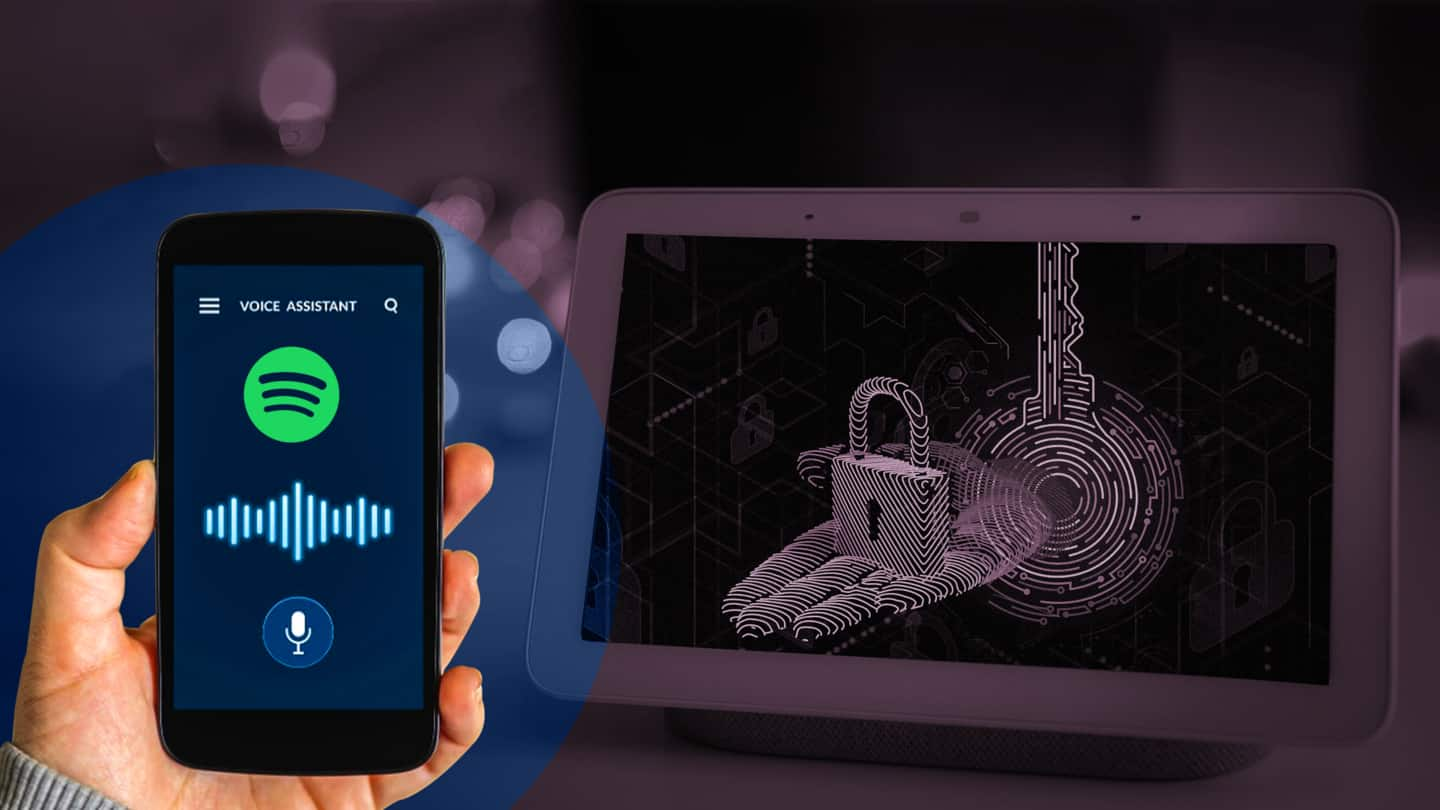
Spotify claims "Hey Spotify" doesn't listen to everything you say
What's the story
In 2020, music streaming giant Spotify was spotted developing a voice assistant triggered by the wake phrase "Hey Spotify". The feature resembles Amazon's Alexa and Apple's Siri.
Earlier this week, Spotify's mobile app users were alerted of this feature via a notification.
While the feature makes finding songs a tad bit more convenient, Spotify's policy on how it'll use the voice data is worrisome.
Functionality
"Hey Spotify" can search for content on the mobile app
Renowned app researcher Jane Manchun Wong spotted Spotify testing "Hey Spotify" early in March.
In the search box for songs, tapping on the microphone button enables the voice search. Alternatively, Spotify listens for commands when triggered by the wake phrase.
"Hey Spotify" can be used to search for an artist, song, or playlist. The functionality is turned off by default.
Twitter Post
Screenshots from when "Hey Spotify" was spotted in early-stage testing
Saying “Hey Spotify” when Spotify is on the screen launches the same Spotify Voice we all know beforehttps://t.co/rTcOfU0cHN
— Jane Manchun Wong (@wongmjane) March 5, 2020
Do you know?
Is "Hey Spotify" redundant already?
Interestingly, "Hey Spotify" could be redundant already. Both Google Assistant and Siri which come baked-in with Android and iOS respectively, are capable of opening and controlling the Spotify app. Additionally, they let users control a host of other system functions via voice commands.
Spotify’s claims
The streaming service claims assistant doesn't process everything it hears
The streaming service recently outlined how it listens to and uses your voice data.
Spotify said the assistant doesn't record everything you say. It only listens after detecting the wake word, or after the microphone button has been tapped in the search bar.
The company claimed it listens for the wake word in "few-second snippets" which are deleted if the wake words aren't detected.
Audiovisual cues
When listening for commands, Spotify will display audiovisual indicators
In an attempt to dispel privacy concerns, Spotify said the app will display audiovisual cues when the assistant is actively listening for commands.
The voice data gathered will be used to improve the assistant with time. However, Spotify said voice data will also be used to improve the accuracy of targeted advertisements.
While that won't bother Spotify Premium subscribers, it's still a privacy concern.
Interactive ads
Forget targeted ads, Spotify is implementing voice-interactive ads through assistant
Spotify said some advertisements will be interactive, allowing users to reply via voice. While it sounds cool at first, Spotify could collect, analyze, and distribute information about your accent, nationality, gender, age, and "emotional state".
Access Now highlighted these concerns citing a patent that Spotify was recently granted. The document details an always-on technology that detects the aforementioned attributes to improve music recommendations.
Toying with emotions
Spotify's patented speech recognition tech could further compromise privacy
As Access Now rightly pointed out, the patented tech could let the music streaming service toy with your emotions for monetary benefit.
The publication also expressed concerns regarding gender discrimination, privacy violations, and data security that could arise if Spotify combined the patented tech with "Hey Spotify" in the future.
Until then, Spotify will continue sharing information with its cloud storage partners, among others.
Blind trust
Presently Spotify lets you turn off interactive ads, "Hey Spotify"
Thankfully, Spotify gives users an option to switch off "Hey Spotify" functionality and voice-interactive advertisements using separate controls.
Still, Spotify's brief FAQ section about the new "Hey Spotify" feature offers little solace and leaves many questions unanswered.
This is yet another instance that highlights how blindly trusting convenience-centric features from tech companies could cost you your privacy if you don't read the fine print.